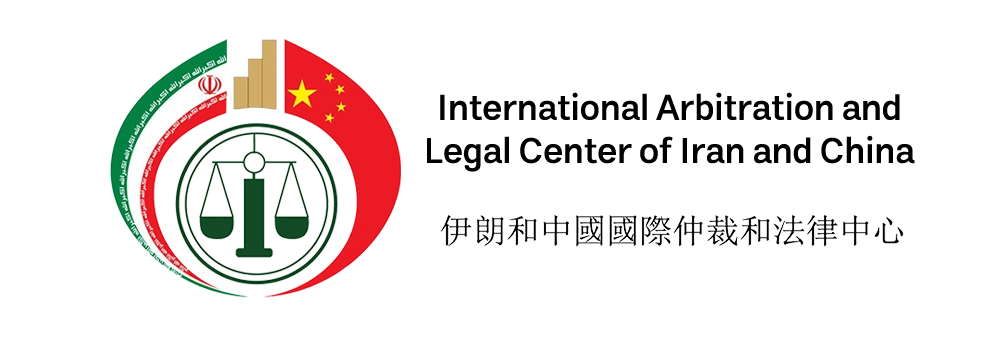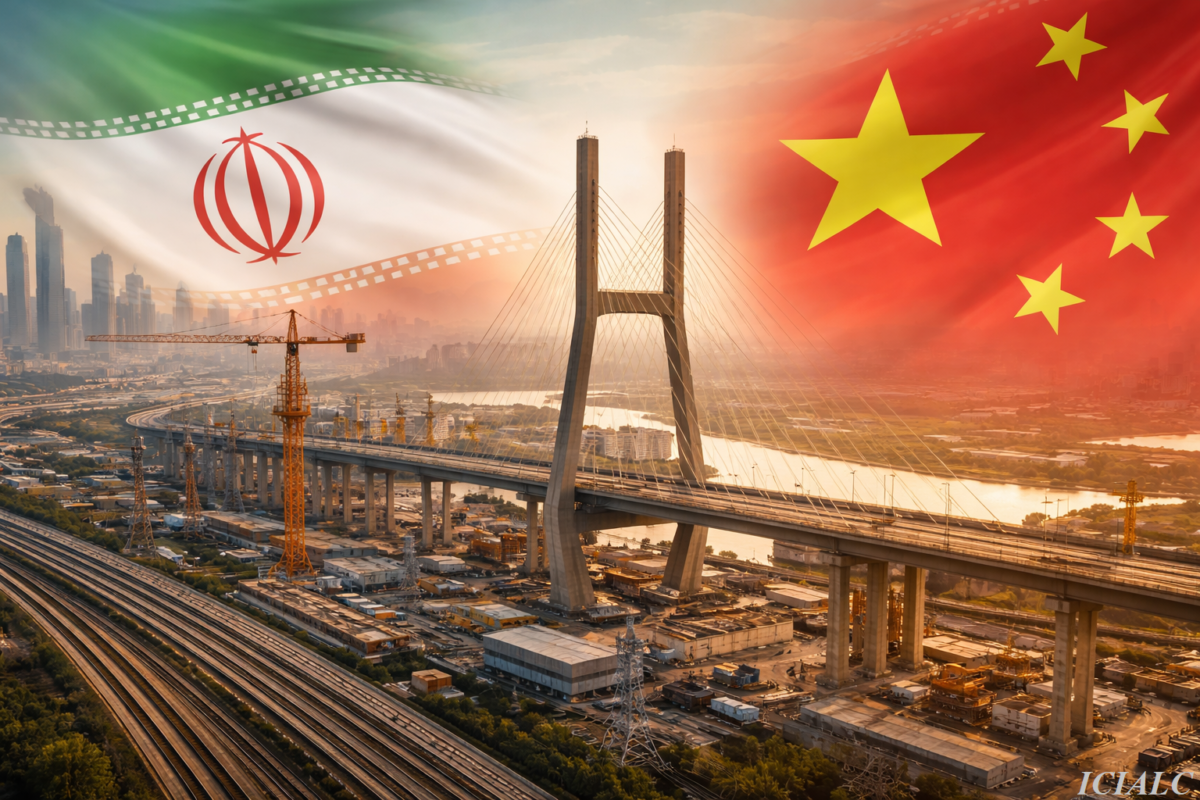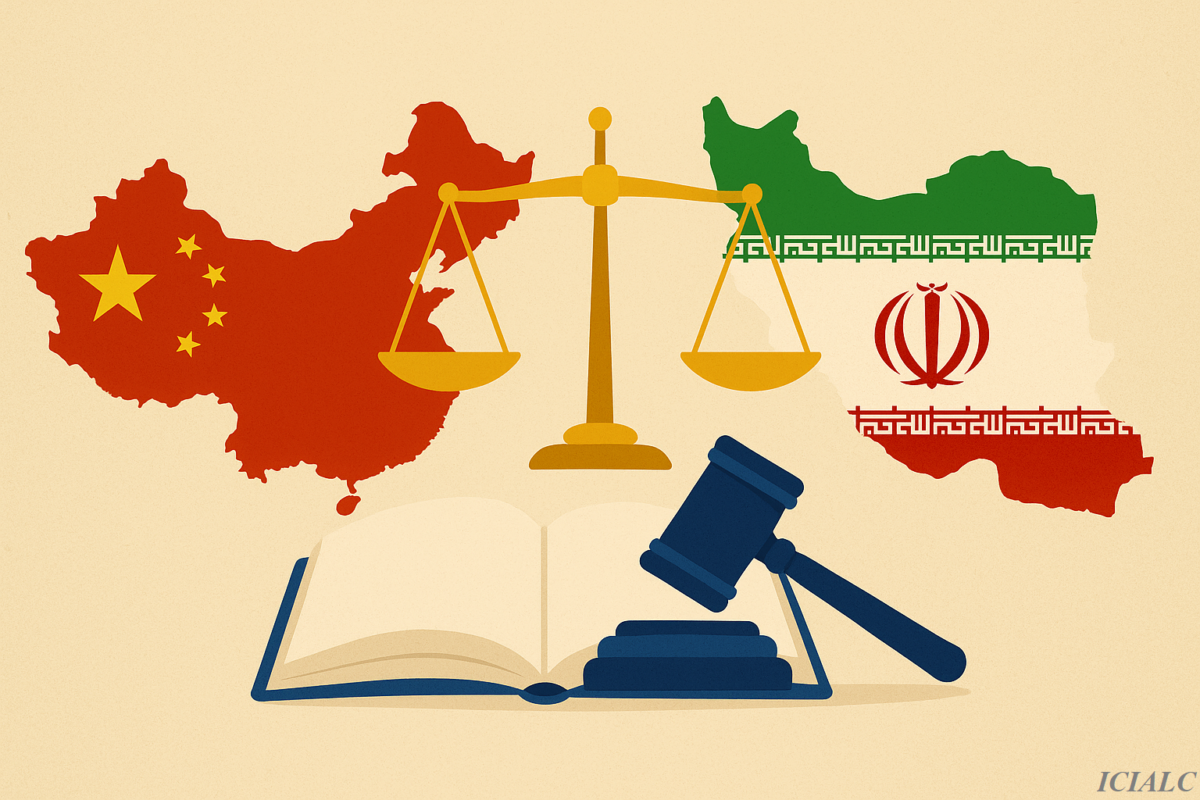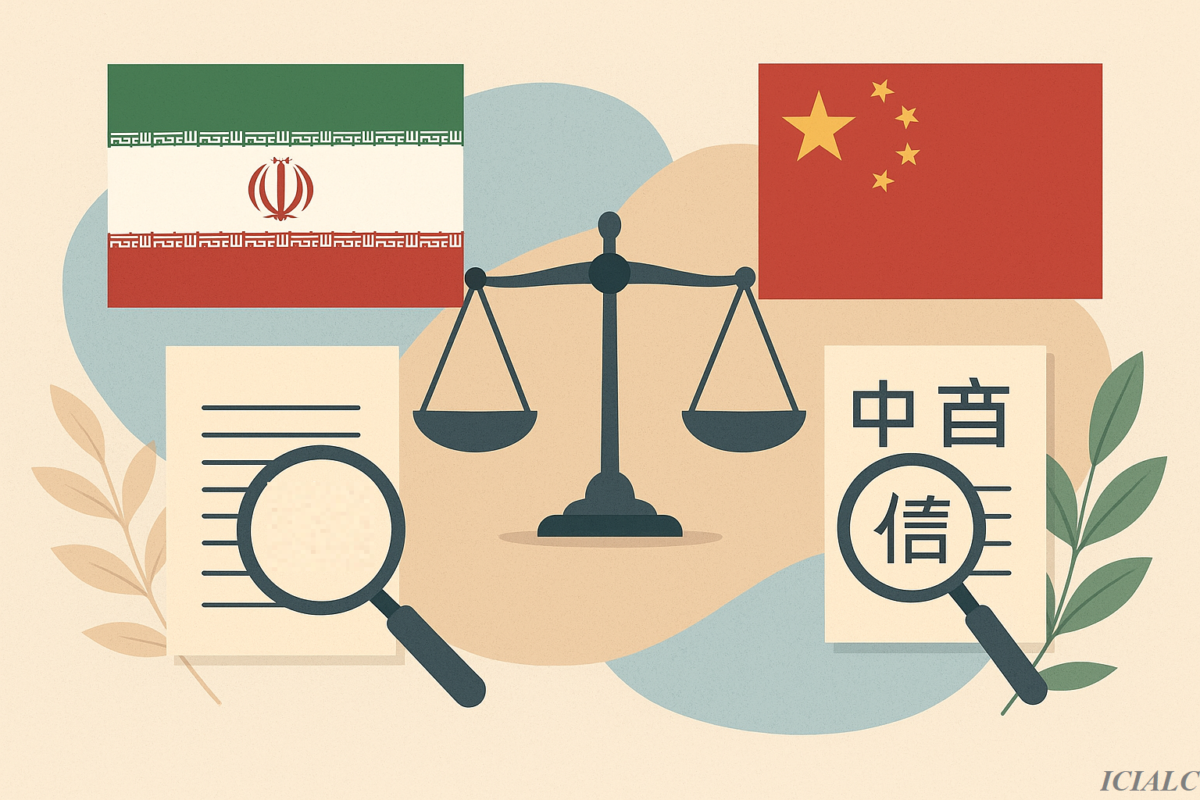Importance of Iran–China Trade Relations
Over the past two decades, Iran and China have established extensive economic ties. China ranks among Iran’s principal trading partners in the fields of oil, petrochemicals, infrastructure, transportation, and industrial goods. Numerous commercial contracts with multi-billion-dollar values have been concluded between companies of the two countries.
However, the high volume of economic interactions, coupled with cultural, legal, and linguistic differences, has resulted in a wide range of contractual disputes. Identifying such disputes and providing preventive remedies is crucial for business practitioners and legal advisors.
Disputes in Iran–China commercial contracts
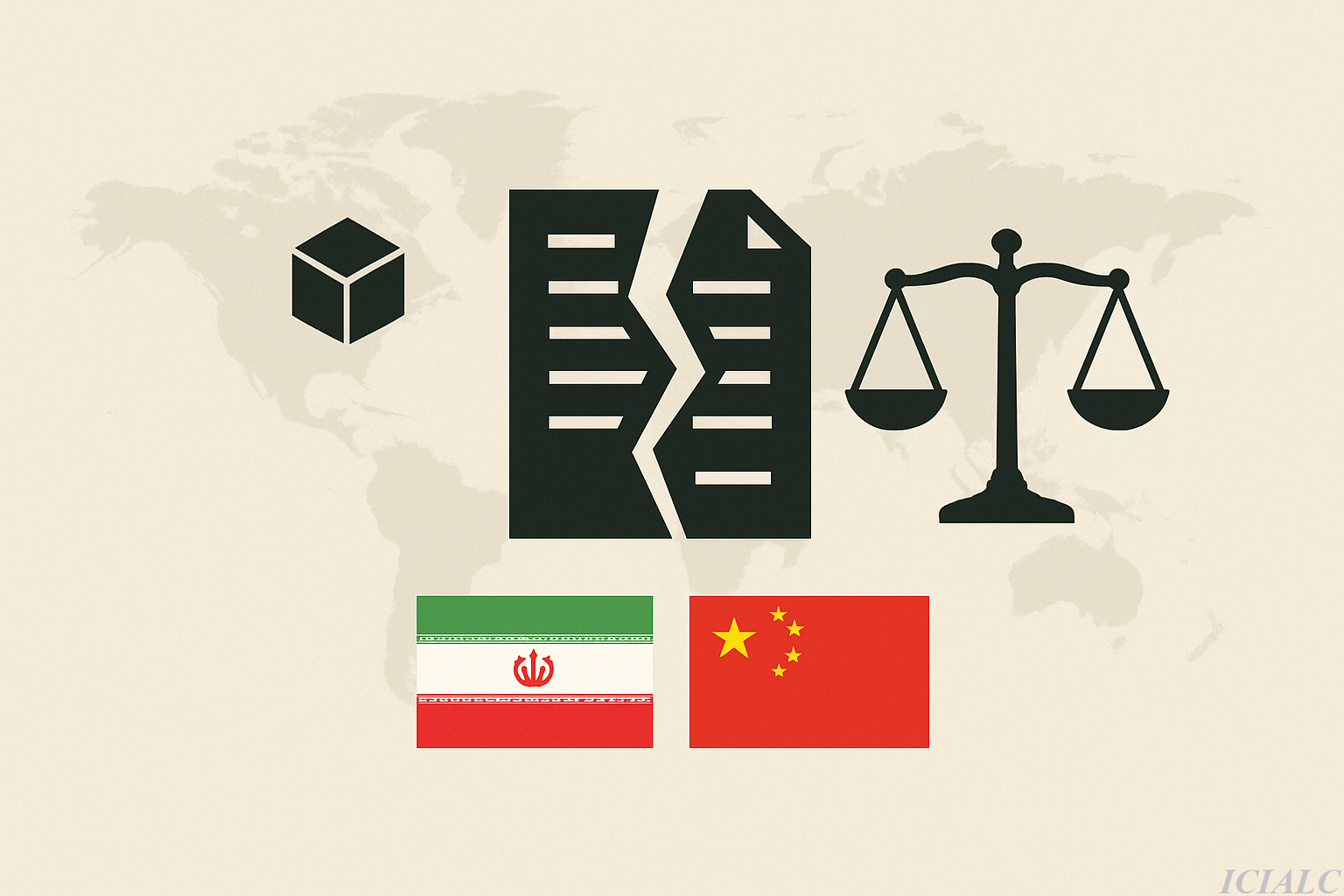
The most important disputes in Iran–China commercial contracts are as follows:
Disputes Regarding Arbitration Clauses
Disputes concerning arbitration clauses usually stem from ambiguity and insufficient distinction among the key elements of arbitration. For example, if the parties only state “disputes shall be resolved through arbitration” without specifying the seat of arbitration, applicable procedural rules, language of proceedings, number and method of appointing arbitrators, and the governing law of the contract, such ambiguity may give rise to secondary disputes (e.g., jurisdictional challenges before national courts). The consequence is typically prolonged dispute resolution, involvement of local courts to determine jurisdiction, and increased costs.
In practice, common issues include whether arbitrators may issue interim measures, whether an arbitral award is influenced by the interpretation of a domestic legal provision, and in which country enforcement should be sought. These issues become further complicated if one party asserts bad faith, willful misconduct, or claims that the arbitration is inconsistent with its national public policy.
To mitigate such risks, arbitration clauses should be drafted with utmost clarity and precision: expressly stating the seat (e.g., “Seat of arbitration: Tehran” or “Seat of arbitration: Shanghai”), the chosen arbitral rules (e.g., ICC, UNCITRAL, SHIAC), the language of proceedings (a neutral language such as English is often advisable), and the method of appointing arbitrators (single arbitrator or tribunal of three, including appointment of the chair). It is also necessary to distinguish between the substantive governing law of the contract and the procedural law of arbitration, and in the case of multilingual versions, to determine which textual version prevails in case of conflict.
A recommended model clause:
“Any dispute arising out of or in connection with this contract shall be settled under the arbitration rules of [ICC/UNCITRAL/SHIAC]. The seat of arbitration shall be …; the language of arbitration shall be …; the number of arbitrators shall be ….”
Additionally, incorporating mandatory pre-arbitration steps (e.g., negotiation or short-term mediation) can prevent minor disputes from escalating.
Disputes in Delivery and Transportation of Goods
Delivery disputes often arise from the complexity of international supply chains, transfer of responsibilities at different stages (loading, transit, unloading), and mismanagement of documentation. Any mistake in specifying the point of risk transfer (e.g., under a designated Incoterms term) can cause disputes over liability for damages, delays, or additional costs. Other problems include inadequate packaging, inconsistency in quantity/weight compared to the bill of lading, or absence of transport documents (Bill of Lading, Air Waybill, CMR), which may prevent customs clearance in the importing country and result in demurrage or extended delays.
Legally, misallocating or ambiguously defining transportation and clearance obligations can lead to claims for damages, delay penalties, or termination for breach. For time-sensitive goods, delays may cause irreparable losses (e.g., in perishables or production lines).
Contracts should clearly establish:
the exact Incoterm with version/year (e.g., CIF 2020 or DDP 2020),
the precise point of risk transfer,
insurance responsibilities (which party arranges insurance, extent of coverage),
responsibility for customs clearance in origin and destination,
delivery timelines (ETA windows),
penalties for late delivery (liquidated damages),
price adjustment mechanisms in case of sanctions or force majeure.
Physical delivery must match supporting documents: bill of lading, commercial invoice, certificate of origin, and insurance certificate should be the recognized acceptance criteria. Preventive clauses may also include sampling, temporary and final acceptance, and packaging standards in accordance with international norms.
Issues in Payment and Financing
Payment matters between Iranian and Chinese companies are particularly complex due to currency volatility, exchange rate fluctuations, sanctions, and banking restrictions. Common disputes arise from late payments, unforeseen currency fluctuations between invoice issuance and payment date, or disagreement over the specific banking documents that trigger payment.
Complications increase where structured financing mechanisms are used (documentary credits, project financing, murabaha transactions). Unclear security arrangements or enforcement of guarantees often exacerbate disputes. Moreover, sanctions and export control regulations may prevent one party from processing payments via international banking systems, leading to delays, non-performance, and serious contractual and legal disputes.
To reduce risks, contracts should incorporate reliable and transparent payment methods, such as confirmed letters of credit from reputable banks, bank guarantees, escrow accounts for milestone payments, and a well-defined contractual currency together with reference mechanisms for exchange rates (e.g., central bank reference rate or specific market rate on a given date). The documentation that triggers payment (Invoice, Packing List, Bill of Lading) must be clearly defined, with precise timelines for payments, late payment interest, or contractual penalties. Furthermore, explicit compliance with sanctions laws must be included, and reliance on illegal circumvention methods must be strictly avoided.
Disputes Concerning Quality and Technical Standards
Technical disputes arise mainly from vaguely or inadequately defined specifications, testing criteria, and acceptance standards in the contract. For instance, goods may match external specifications but fail to meet functional performance. Where tolerances, reference standards (ISO, ASTM, GB), test methods, or reference samples are not defined, determining compliance becomes contentious.
Problems also emerge if the inspection process (pre-shipment, at loading, or at destination) is undefined, or if responsibility for inspection costs and quality certificates from accredited institutions (SGS, BV, TÜV, etc.) is unclear. Legal consequences may include mandatory replacement or repair, price reduction, contract termination, and damages. For technical equipment, disputes may halt entire projects and cause secondary losses.
Preventive measures include:

attaching precise technical specifications as annexes to contracts, citing applicable standards and versions,
defining sampling methods and acceptance criteria,
establishing inspection regimes and deadlines for objections,
appointing independent experts or laboratories in case of disputes.
Incorporating a clause for technical arbitration or expert determination can expedite resolution. Nevertheless, priority should be given to amicable remedies such as repair, replacement, or corrective actions within strict timelines before escalation.
Legal Preventive Strategies
Given the extensive Iran–China trade relations, contractual disputes are inevitable. However, experience indicates that many disputes arise from ambiguity or oversight during the contractual drafting stage. The more precise and transparent the contract based on international best practices the lower the risk of disputes and the faster and less costly their resolution will be.
Drafting Clear Arbitration Clauses
One of the most critical measures is to include a robust and unambiguous arbitration clause. Such clauses must specify: arbitration seat, applicable rules, language, number and method of appointing arbitrators, and the law governing arbitration procedure.
Determination of Language and Governing Law
Ambiguities concerning the authoritative contract language or applicable law often generate disputes. Therefore, contracts should stipulate which language prevails in case of divergence. Similarly, relying solely on Iranian or Chinese domestic law may disadvantage one party, hence the advisability of neutral frameworks such as UNCITRAL or UNIDROIT principles.
Use of Model Contracts
Model contracts from institutions such as UNCTAD or ICC provide standardized, balanced frameworks covering delivery, payment, dispute settlement, and liabilities. Adopting these templates with necessary modifications reduces uncertainties.
Resorting to Reputable Arbitral Institutions
When disputes arise, selecting a reputable arbitral center such as ICC, SHIAC, or the Arbitration Center of Iran Chamber of Commerce ensures efficient, confidential, and enforceable awards. These are further supported by recognition under the New York Convention 1958, enforceable in both Iran and China.
Conclusion and Recommendations
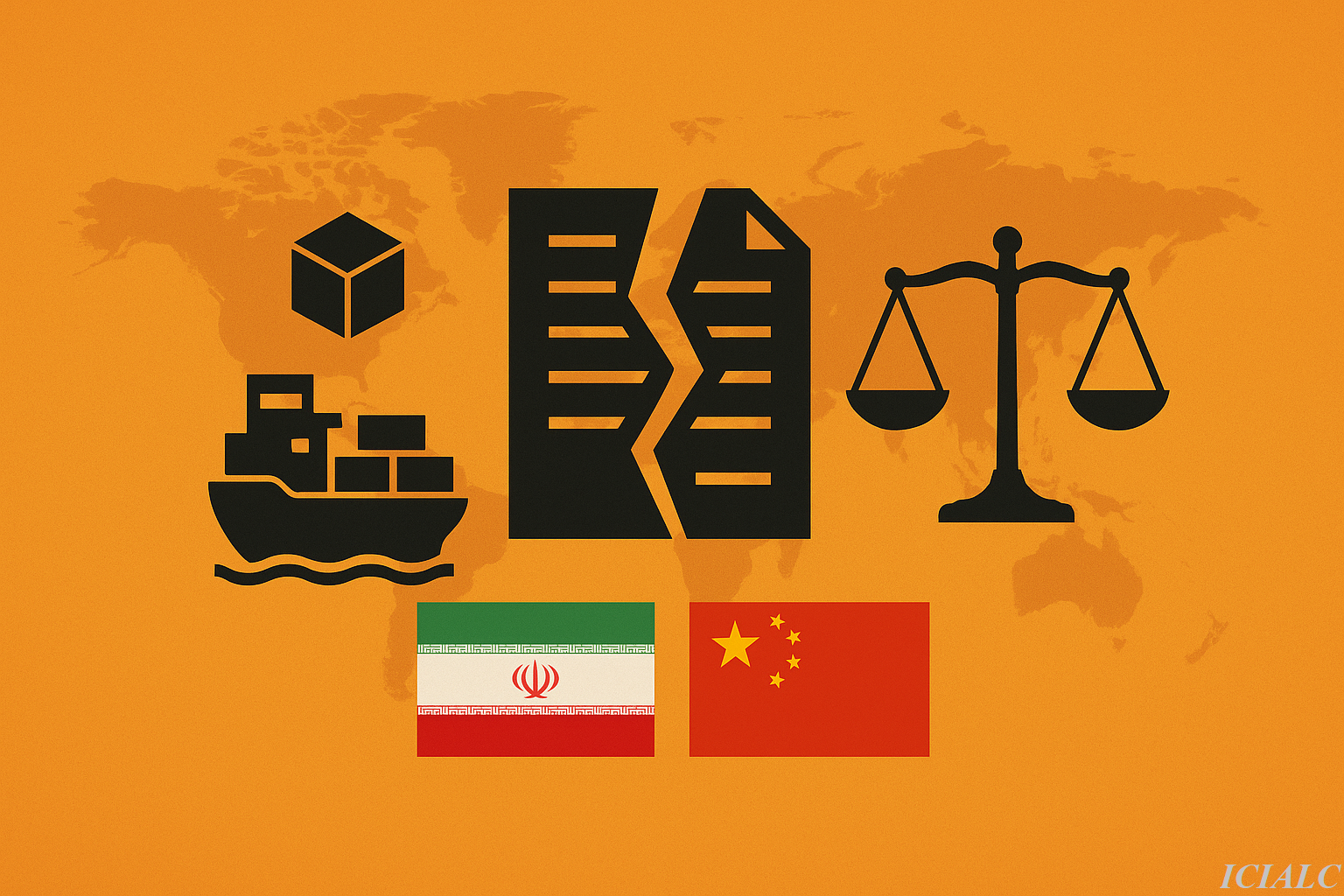
Iran–China economic cooperation now spans numerous industries including energy, infrastructure, transportation, technology, and trade in goods. The conclusion of complex, high-value contracts naturally gives rise to disputes, particularly in four critical areas: arbitration clauses, delivery and logistics, payment and financing, and technical/quality standards.
Most disputes originate not from bad faith but from contractual ambiguities and differences in legal systems. Preventive drafting clear arbitration clauses, reliance on international model contracts, precise allocation of delivery/payment responsibilities, and established quality inspection mechanisms significantly reduces risks.
Strategically, both Iranian and Chinese companies should involve specialized legal advisors in international arbitration and bilateral trade during negotiation stages. This ensures critical clauses such as payments, risk allocation, and enforcement of arbitral awards are carefully structured. Ultimately, professional preventive approaches to contract design, coupled with reliance on reputable arbitral institutions, minimize disputes and strengthen the long-term stability of Iran–China commercial relations
